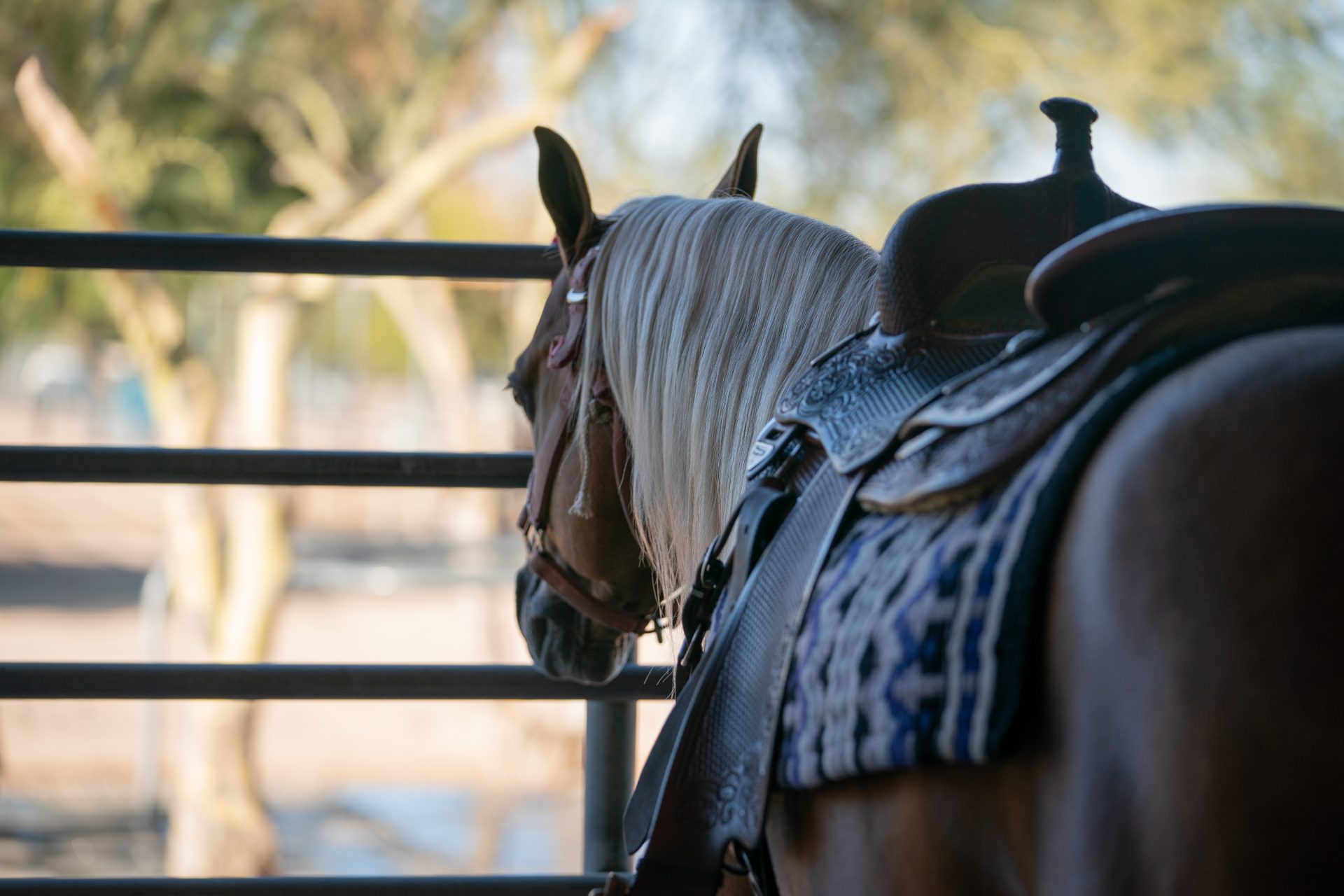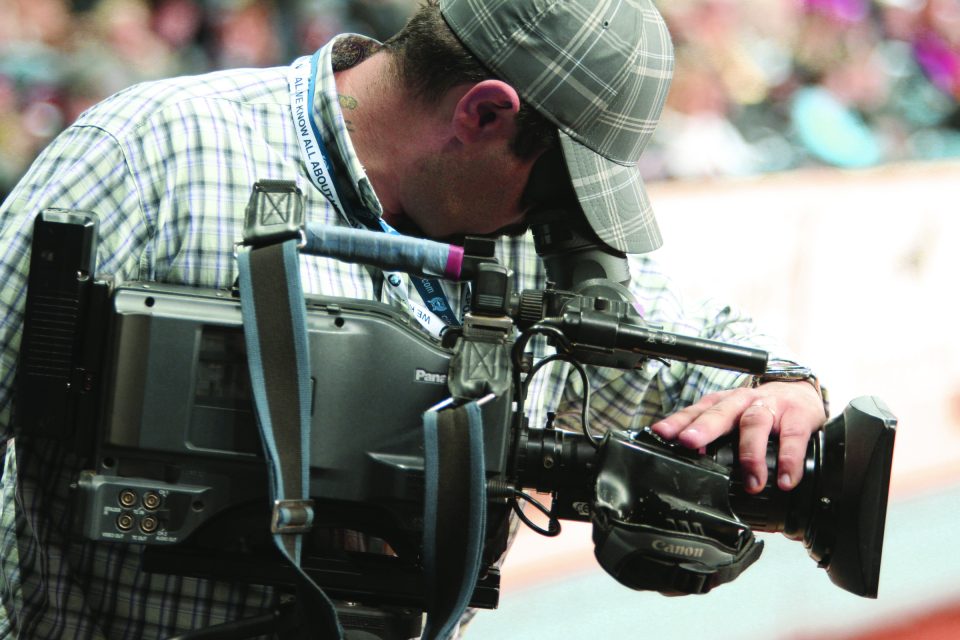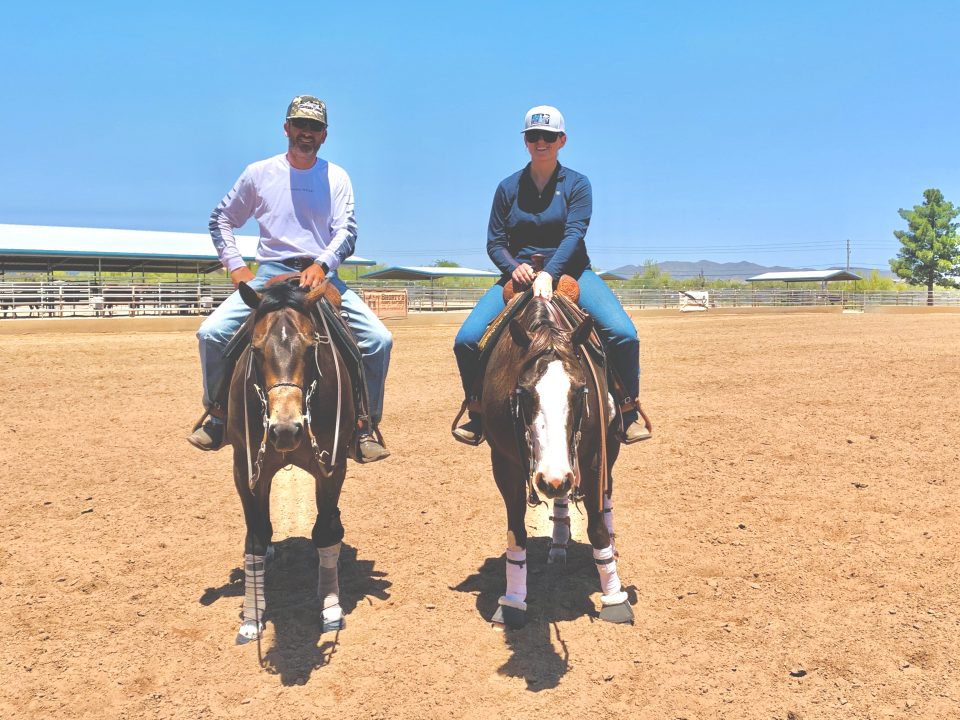How to handle the wide variety of moods your non pros might have while competing.
By Megan Arszman

Working with a non pro isn’t necessarily an easy task, especially when it’s also with a horse. The title “non pro” can run the gamut of almost every level of rider imaginable. There’s the non pro who has an excess of $500,000 in lifetime earnings and has been competing for years on aged-event horses. Then there’s the non pro who just started out in reining and can barely
remember a pattern, but they’re enjoying their horses and their time in the saddle. Some non pros want to be competitive every time out and add to their collection of bronzes; some non pros might just want the experience and don’t concern themselves with the “winning is everything” mentality.
Because of the vast difference in experience and passion for competition in the non pro ranks, you’ll probably run into a few different personas of the non pro in your professional career. And how you deal with the multiple personalities of a non pro can make or break your own career.
In this series, we’ll cover six common types of non pros, and the best advice for giving them a memorable, positive experience at the Futurity and any horse show, provided by veteran NRHA Professionals Carol Metcalf, Sam Smith, and Robin Schoeller.
PART 2: FATHER/MOTHER/SPOUSE WITH GOOD INTENTIONS
PART 5: WAY-TOO-BIG-DREAMS DARCY
MICROMANAGING MARY
Mary has been riding horses all her life…on the hunter circuit. She’s been reining for about three years now, but feels that she can manage her first 3-year-old, Spooks MeMe, on her own. While you’re trying to direct her on finding the center point on the coliseum wall, she’s rolling her eyes and looking bored, saying she already knows what to do.
Back at the stalls, she constantly looks over your shoulder, questioning why the maroon wraps were on “MeMe’s” legs and not her new neon argyle wraps. It’s something that grates on your sleep-deprived nerves.
SOLUTION: “Sometimes you have to step back from things a little bit if they want to continue doing things their way, even though you know what works,” says Metcalf. “If they want to micromanage, nitpick, or do things their way, I let them experience that because it usually comes around. Sometimes it does work for them, but if it doesn’t, I just say a few words, stay unemotional, and keep right to the point: ‘You’ve tried it your way, and it didn’t work, so how about trying it my way?’”
Sometimes the micromanaging might come from you. A self-described recovering micromanaging trainer, Sam Smith has learned over the years that everyone makes mistakes. He’s calmed down his own micromanaging tendencies.
“If I have a reason to think a non pro can be competitive, that person has to have confidence, and nothing destroys a person’s confidence more than not letting them ride their horse,” says Smith. “The good horses are going to be good, in spite of mistakes we might make.”
Learn about the many other personality types and how to help them get the most out of their show by clicking the links at the beginning of this article.



